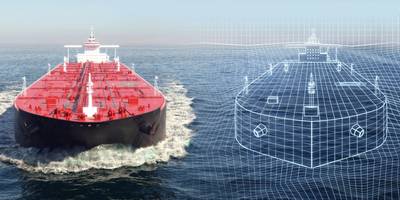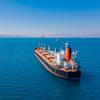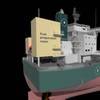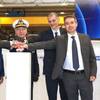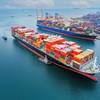AI-Based Semi-Autonomous Voyage Planning System Tested
Yara Marine Technologies, artificial intelligence (AI) application developers Molflow, Chalmers University of Technology and social science specialists from Halmstad University and Gothenburg University have collaborated over three years to develop and trial an AI-based semi-autonomous voyage planning system.
Initiated in August 2020, the Via Kaizen project explores how AI and machine learning can enable more energy-efficient voyage planning for ship operators. The project demonstrated that incorporating machine-learning algorithms for improved predictive modelling of ship propulsion power can result in more accurate performance forecasting and optimization.
Funded by the Swedish Transport Administration Trafikverket, the project utilized pre-existing tools to enable a higher degree of digitalization and automation in vessel operations. These included Yara Marine’s propulsion optimization system FuelOpt and performance management and vessel data reporting tool Fleet Analytics, as well as Molflow’s vessel modelling system Slipstream.
The resulting system was trialed onboard two vessels, a PCTC car carrier operated by UECC and a Rederiet Stenersen product tanker. The wide-ranging results indicated successful energy efficiency optimization based on estimated time of arrival (ETA), with one of the two trial vessels opting to continue using the system.
Mikael Laurin, Head of Vessel Optimization at Yara Marine Technologies, said, “The Via Kaizen project speaks directly to where shipping is at the moment — where the intersections of digitalization, decarbonization and crewing determine our success in addressing climate change. The use of AI and machine learning to plan and predict energy-efficient voyages has significance for an industry looking to lower emissions while addressing rising fuel costs.
“Similarly, new technologies can streamline operations but require collaboration and buy-in from stakeholders across the board, necessitating crew familiarization and training, proactive design, and new corporate strategies. As a result, the insights and information gained from the project carry broader significance for our industry’s future.”
Joakim Möller, CEO at Moflow, said, “Recent advances in vessel data tracking and analysis, weather information, and more can be used to gauge where operations have the potential to be streamlined. As the maritime industry seeks to utilize good data to inform decision-making, AI and machine learning can play a key role in processing and simplifying available data for clear, actionable outcomes.”
Throughout the trials, crew played a key role in determining the success of energy efficient voyages. This shows the necessity giving ship crews and management every opportunity to engage with, understand and embrace the value of AI-powered ship operation support technology in assisting daily operations onboard and ashore.
Following the conclusion of this project, additional funding has been secured from the Swedish innovation agency Vinnova to further explore a selection of its findings.



